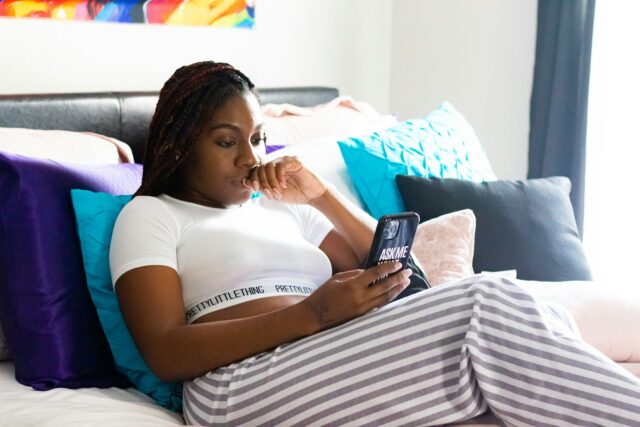Sometimes being comfortable with your own company gets misread by people.

Obviously, you’re not responsible for what anyone else thinks — their ignorance is their problem, not yours. However, these habits might make people think you’re lonely when you’re actually just living life on your own terms. Be prepared for some awkward expressions of concern and checking to make sure you’re okay, and try not to bite their heads off for making the wrong assumption — they’re probably coming from a good place.
1. You eat alone at restaurants without staring at your phone.

The host asks, “Just one?” and nearby diners throw sympathetic glances your way. You’re actually enjoying your meal and the chance to people-watch, but some see an empty chair and assume sadness. Society has somehow decided that enjoying food requires company, or at least the distraction of a screen. Your comfortable solitude often gets mistaken for forced isolation.
2. You leave social events early.

The party’s still going strong, but you head out after a couple of hours. People insist you should stay, assuming you’re going home to an empty house. Really, you’ve just hit your social energy limit and know what works for you. Early exits get read as escape rather than what they are — good boundary setting.
3. You don’t share much on social media.

Your weekend was great, but there’s no photographic evidence online to prove it. Friends start checking in more frequently, worried by your digital silence. The lack of social media presence gets interpreted as a lack of social life, when really you’re just living moments instead of documenting them. Offline happiness leaves no digital footprint.
4. You turn down group plans without alternate suggestions.
 Source: Unsplash
Source: Unsplash The invitation to another crowded happy hour comes in, and your “no, thanks” arrives without a counteroffer. Other people might think you’re withdrawing, but you’re just being honest about what you don’t enjoy. Direct declines without social bargaining get read as isolation rather than clear boundaries.
5. You maintain different friend groups separately.

Your work friends never meet your college friends, and your hobby groups stay distinct. People assume you’re keeping connections scarce when you’re actually maintaining multiple social circles. The choice to keep worlds separate gets misread as having limited connections rather than intentional boundaries.
6. You don’t immediately respond to messages.
 Source: Unsplash
Source: Unsplash The group chat pings away while you’re focused elsewhere. Hours pass before you catch up on the conversation. Quick responses have become society’s measure of connection, making delayed replies look like social disconnection. It’s weird, but your digital independence gets mistaken for isolation at times.
7. You spend weekends on solo projects.

Saturday arrives, and you’re deep into reading, painting, or whatever catches your interest. No plans means no interruptions, but some people see an empty calendar as an empty life. Time spent pursuing personal interests gets labelled as time spent alone rather than time spent engaged.
8. You don’t keep track of social media trends.

References to the latest viral moment fly over your head during conversations. Your genuine confusion gets interpreted as being out of touch rather than simply focused elsewhere. Cultural connectivity has become shorthand for social connection, making trend awareness seem like a measure of inclusion.
9. You’re comfortable with silence in groups.

While other people rush to fill conversational gaps, you sit easily in quiet moments. Your comfort with silence often makes people uneasy, reading it as social awkwardness rather than social security. Peaceful pauses get misinterpreted as inability rather than choice.
10. You don’t share personal updates unprompted.

Life changes and achievements stay private unless directly asked about. This information boundary gets read as having nothing to share rather than choosing what to share. Privacy is often mistaken for emptiness rather than selective sharing.
11. You attend events solo.

Concerts, movies, or art shows — you go when something interests you, regardless of having company. People spot you alone and assume you couldn’t find anyone to join, missing that you didn’t look. Independent attendance gets labelled as a last resort rather than a first choice.
12. You don’t collect acquaintances.

Casual connections stay casual instead of being pushed toward friendship. Your selective depth in relationships gets seen as inability to connect rather than choice about connection. Quality over quantity in relationships often looks like scarcity from the outside.
13. You keep your living space quiet.

No TV running in the background, no constant music or podcast chatter. The quiet environment you enjoy reads to other people as the absence of life rather than the presence of peace. Comfortable silence gets interpreted as void rather than choice.
14. You don’t mention weekend plans in advance.

Friday afternoon conversations never include your upcoming plans. Your privacy about personal time gets read as having no plans rather than having private ones. Unannounced activities are assumed to be non-existent rather than simply undisclosed.




